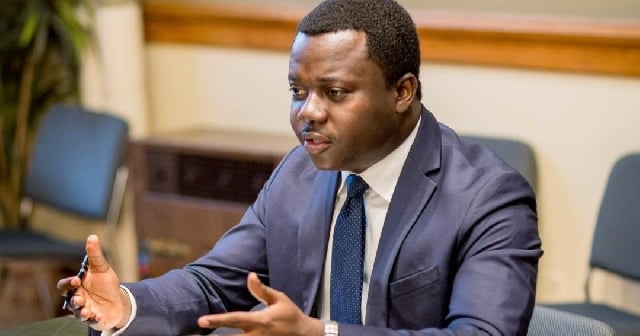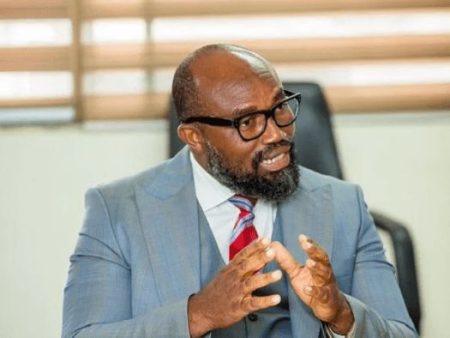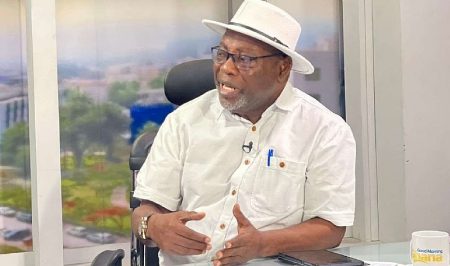The political landscape of Ghana has been roiled by accusations of obfuscation and a lack of transparency surrounding investigations into drug trafficking and money laundering, with Assin South MP, Rev. John Ntim Fordjour, leading the charge against the Mahama administration. Fordjour has pointedly accused the government of deliberately concealing crucial information related to these investigations, raising concerns about the potential for Ghana to become a haven for illicit activities. The MP’s accusations stem from what he perceives as a pattern of evasiveness and contradictory statements from the government, particularly regarding the movement of suspicious flights and the handling of confiscated containers reportedly containing gold and foreign currency. This perceived lack of transparency has fueled Fordjour’s suspicion of a deliberate cover-up, raising questions about the government’s commitment to combating organized crime.
The controversy intensified when government spokesperson Felix Kwakye Ofosu claimed that Fordjour had been invited by security agencies to assist with investigations but had failed to comply. Fordjour vehemently denied these allegations, labeling them as outright fabrications. He challenged Kwakye Ofosu to produce evidence of any such invitation, asserting that no security or intelligence agency had ever contacted him. This public exchange escalated the tension between the government and the opposition, further muddying the waters surrounding the investigations. Fordjour’s denial casts doubt on the government’s narrative and reinforces the perception of a campaign to discredit those questioning the official line. The conflicting accounts have created a climate of distrust, hindering efforts to establish a clear and credible understanding of the ongoing investigations.
Adding to the complexity of the situation is Fordjour’s revelation that his request for a Joint Security briefing, intended to provide updates on the investigations, was blocked by the National Democratic Congress (NDC) Parliamentary Caucus and the government. This move has further fueled Fordjour’s suspicions and contributed to the growing perception of a concerted effort to suppress information. The blocking of the briefing raises concerns about the government’s willingness to engage in open dialogue and accountability. By preventing access to critical information, the government risks exacerbating existing anxieties and solidifying the belief that it is actively concealing vital details about the investigations from the public and elected representatives.
Fordjour’s concerns extend to the handling of two specific incidents, which he describes as “incoherent” and “questionable.” The first involves the entry and departure of two flights under suspicious circumstances. The government’s explanations regarding these flights have been deemed insufficient and untrustworthy by Fordjour, who questions the credibility of the official narrative. The second incident revolves around the seizure of 12 containers reportedly filled with gold and foreign currencies by National Security on February 9th. The government’s failure to address the status of these containers has added to the growing list of unanswered questions, further deepening the sense of opacity surrounding these investigations.
Furthermore, Fordjour highlights the ongoing investigation into a significant cocaine bust involving an estimated $500 million worth of drugs. This incident underscores the gravity of the situation and reinforces Fordjour’s warning that Ghana risks becoming a major hub for drug trafficking and money laundering if the government continues its perceived inaction and lack of transparency. The sheer scale of this cocaine bust raises alarming questions about the potential depth and reach of organized crime within the country. The government’s perceived reluctance to fully address these concerns fuels speculation about potential complicity or, at the very least, a lack of capacity or will to effectively combat these illicit activities.
The confluence of these incidents, coupled with the government’s perceived evasiveness, has created a tense political climate. Fordjour’s accusations paint a picture of a government unwilling to fully address serious allegations of drug trafficking and money laundering. The MP’s insistent calls for transparency and accountability underscore the urgent need for a thorough and impartial investigation into these matters. The future of Ghana’s reputation and its ability to effectively combat organized crime hinges on the government’s willingness to address these concerns openly and decisively. Failure to do so risks further eroding public trust and potentially emboldening those engaged in illicit activities. The current situation demands a clear and unequivocal commitment from the government to uphold the rule of law and ensure that all those involved in these serious allegations are held accountable.














